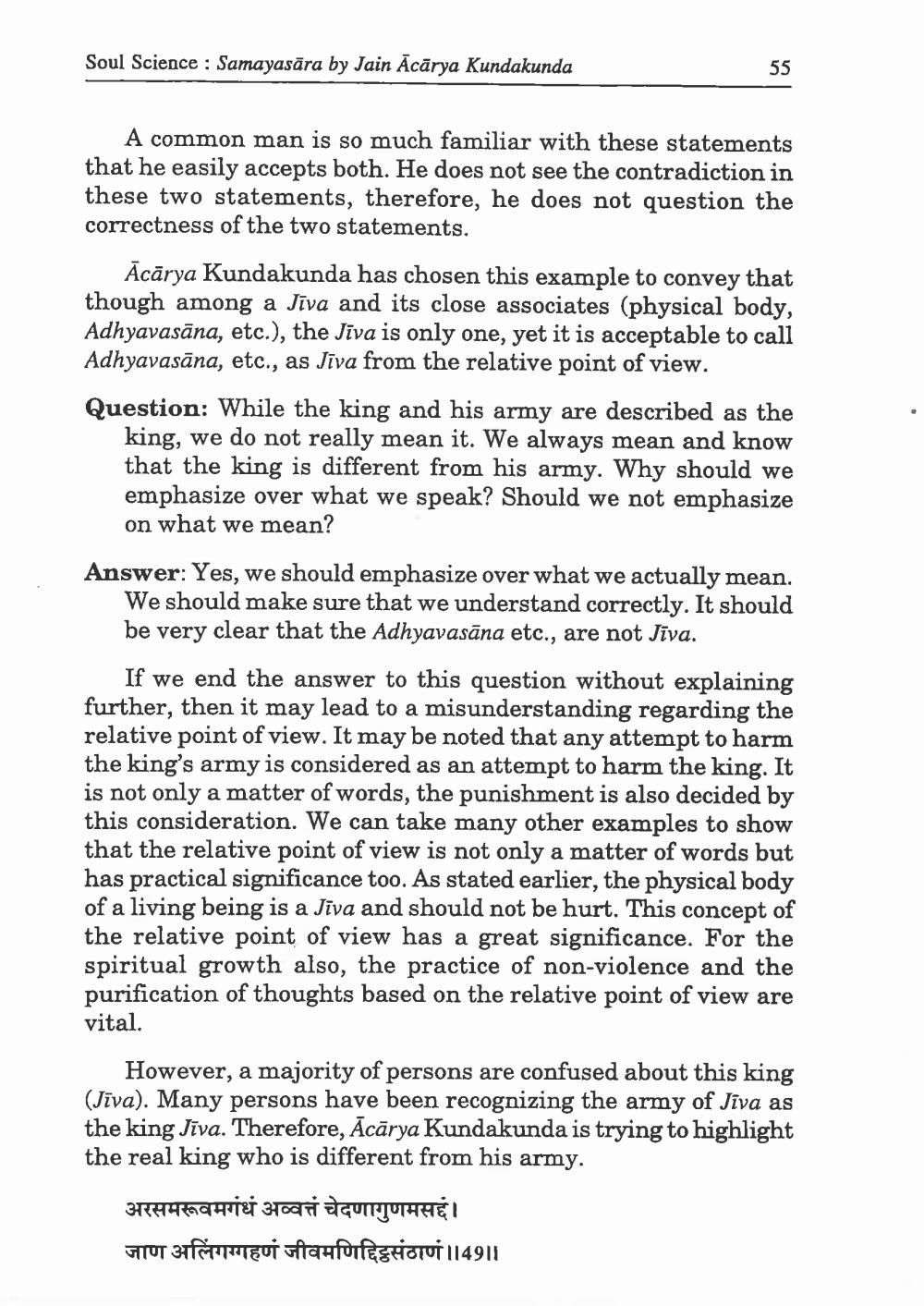________________
Soul Science : Samayasāra by Jain Ācārya Kundakunda
A common man is so much familiar with these statements that he easily accepts both. He does not see the contradiction in these two statements, therefore, he does not question the correctness of the two statements.
Ācārya Kundakunda has chosen this example to convey that though among a Jiva and its close associates (physical body, Adhyavasāna, etc.), the Jiva is only one, yet it is acceptable to call Adhyavasāna, etc., as Jīva from the relative point of view. Question: While the king and his army are described as the
king, we do not really mean it. We always mean and know that the king is different from his army. Why should we emphasize over what we speak? Should we not emphasize on what we mean?
Answer: Yes, we should emphasize over what we actually mean.
We should make sure that we understand correctly. It should be very clear that the Adhyavasāna etc., are not Jiva.
If we end the answer to this question without explaining further, then it may lead to a misunderstanding regarding the relative point of view. It may be noted that any attempt to harm the king's army is considered as an attempt to harm the king. It is not only a matter of words, the punishment is also decided by this consideration. We can take many other examples to show that the relative point of view is not only a matter of words but has practical significance too. As stated earlier, the physical body of a living being is a Jiva and should not be hurt. This concept of the relative point of view has a great significance. For the spiritual growth also, the practice of non-violence and the purification of thoughts based on the relative point of view are vital.
However, a majority of persons are confused about this king (Jīva). Many persons have been recognizing the army of Jiva as the king Jiva. Therefore, Ācārya Kundakunda is trying to highlight the real king who is different from his army.
अरसमरूवमगंधं अव्वत्तं चेदणागुणमसदं। FIT F eui ofta foresti TOT 114911




